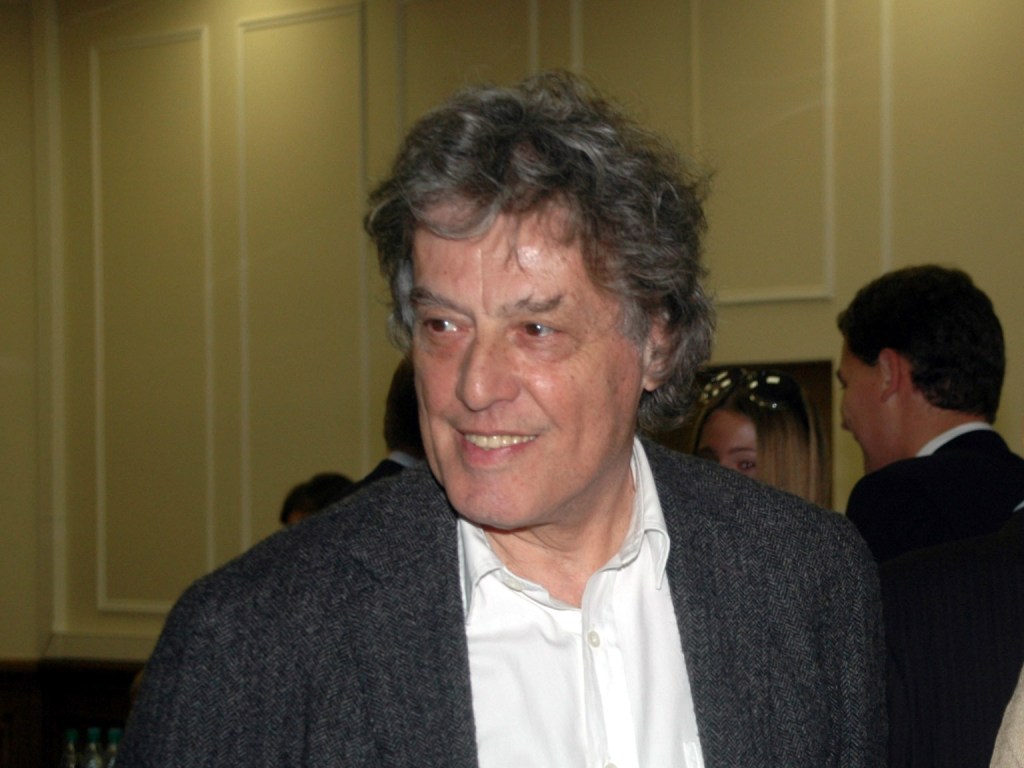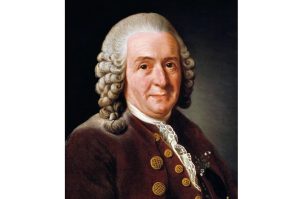Tom Stoppard, libertarian
Hannah Gold reviews Hermione Lee’s biography of Tom Stoppard in The Nation. I haven’t read the book, but I want to. Gold does a fair job in the first part of the review of providing us with a basic outline of Stoppard’s life and discussing Lee’s approach. In the second half, she turns to Stoppard’s politics and what she sees as a weakness of his work:
In a speech delivered by Jake Milne, one of the journalist characters in Night and Day, which Lee posits “sums up the author’s views,” Stoppard argues that “Junk journalism is the evidence of a society that has got at least one thing right, that there should be nobody with the power to dictate where responsible journalism begins.” Alongside the play’s denunciation of unions during the rise of Thatcherism, what we have here is standard libertarian fare. (Stoppard got on well with Thatcher, and she is said to have enjoyed his plays.) Somehow, getting his start in newspapers instilled in Stoppard a lifelong love of the industry, to the point where he perceived a hallmark difference between capitalist and communist countries to be a free press. Later in life, Stoppard has become more liberal. However, his advocacy, and the political content of his later plays, remain largely confined to the promotion of free expression.
Gold goes on to suggest that Stoppard’s interests are somehow too narrow:
But the more one reads of his biography, the more it sinks in that most of his adventures have been confined to his plays, in which self-discovery is of little concern. What is expressed in his plays tends to conform to a few core principles: Great art can transcend political difference, the quest for knowledge is ennobling, and catharsis is what happens when we discover a crucial detail of our biography that had been misplaced. These sorts of principles get dressed up in the dramatis personae but are otherwise rinsed of identity—the intellectual gambits are the stars of the show.
I confess I don’t know what she means by “self-discovery” here. Discovery for whom? Stoppard? Us? All literature is concerned with “self-discovery” in that it is largely concerned with the human condition. Isn’t Stoppard’s interest in fate and human agency part of a search for understanding the self? Or does she mean the sort of self-discovery we get in Disney films? I don’t think so, but color me baffled.
She writes that Stoppard plays are all more or less the same. Well, sure. There are lots of freaks in O’Connor. Religious symbolism was important to Eliot. Nature plays a central role in Frost’s poetry. Everyone’s interests are limited.
In other news
William Hope Harvey and the forgotten Free Silver Movement:
In 1926 William Hope “Coin” Harvey began constructing a “pyramid” in the Arkansas Ozarks, with the intention of single-handedly preserving a record of the dying American civilization’s proudest creations in a concrete time capsule. Less than fifty years later, the remains of his monument—more of an obelisk than a pyramid—was eroding under the surface of a man-made lake. The remains of Harvey lie in a mausoleum nearby; they, too, would be drowned had they not been moved further up the bank of Beaver Lake by a local contractor at the behest of the U.S. Army Corps of Engineers. The futility of Harvey’s final work echoes the fruitlessness of the project for which he was most known: bimetallism and the return of free silver, a monetary system based on silver as well as gold.
Harvey was many things: a lawyer, a businessman, a mine owner, a real estate developer. But at his core he was a political thinker whose pamphlets reached hundreds of thousands, if not millions, of readers during the late nineteenth-century fight over fiat currency. He was a visionary, a crank, a failure, a polemicist who thought of himself as a prophet. His commitment to a political ideology that a century later has fallen almost entirely out of public consciousness pulled him away from his responsibilities to his family and his business ventures; now he is all but unknown.
Revisiting Lucky Jim: “Lucky Jim was published in 1954. It was multiply trailblazing: an important writer’s first novel, the first Angry Young Man novel, Britain’s first campus novel. The story is as simple as the title. Jim Dixon, a second-rate history lecturer at a fourth-rate university (so called) gets himself in a continuous mess with women and his job. The laugh-out-loud rate is high to bellowing every other page.”
Michael Dirda recommends seasonal ghost stories and mysteries: “The late Hugh Lamb’s anthologies — Victorian Nightmares, Terror by Gaslight and a dozen others — are treasured by aficionados of the weird, in part for Lamb’s informative introductions to each story. This fall, Richard Lamb discovered that his father’s papers comprised enough unused material to make up this posthumous collection, a typical Lambian assortment of writers who are forgotten (F. Sartin Pilleau, E.R. Suffling), half-forgotten (Hume Nisbet, Alice Perrin) and vaguely familiar (William Hope Hodgson).”
Andrew Cuomo ordered to pay the state of New York the $5.1 million he earned for his pandemic book while in office: “The extraordinary resolution was approved by the Joint Commission on Public Ethics in a 12-1 vote — a month after the ethics agency voted to revoke its prior approval allowing Cuomo to earn outside income from his book American Crisis: Leadership Lessons from the COVID-19 Pandemic while he was still governor and New York was in the throes of the deadly coronavirus outbreak.”
Who are Asian-Americans? Alex Perez reviews Jay Caspian Kang’s The Loneliest Americans:
Kang dissects the “Asian-American” label, finding it heavy on contradictions and light on substance. Very little history or solidarity binds the disparate identities typically lumped together under the Asian-American umbrella. Kang compares the assimilating Asian, “who wants to become as white as will allow” and is concerned with “superficial markers of identity, whether rituals around boba tea, recipes, or support for ethnic studies programs and the like,” with the “first-generation undocumented immigrant from Fujian province who delivers their meals.”
Podcasting is a passing trend, Eric Nuzum argues in NiemanLab: “Remember all those pivots to video? The same thing will happen to podcasting.” Well, if that’s the case, you may not have that many opportunities to listen to my new podcast for The Spectator. Better listen while you can. This week I talk to Tim Stanley about this new book, Whatever Happened to Tradition?


















